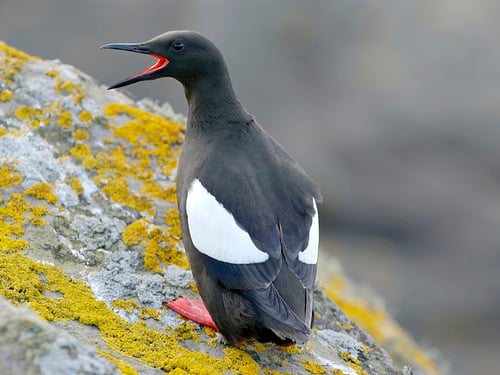Now that the school summer holidays have started, more people will be using our beautiful Manx beaches and exploring the coastline.
Some of these people may not know that avian influenza (or bird flu) is widespread, or what to do if they encounter a dead or dying bird.
The Department of Environment, Food and Agriculture (DEFA) issued the following update last week:
The department has collected dead sea birds from multiple suites around the island over the last few weeks, mainly focused around the beaches on the south and west of the island.
Samples were taken from guillemots collected on Port Erin beach and the results from the samples confirmed the birds were positive for high pathogenic H5N1 avian influenza on July 17, 2023. On July 25, 2023, we also received positive results (HPAI H5N1) from a razor bill collected from a beach in Peel.
There are currently no avian influenza restriction zones in place on the Isle of Man and the risk to human health is very low. The public are asked not to handle dead or sick wild birds.
DEFA is strongly advising that bird keepers should remain vigilant by practicing good biosecurity and they should reduce any contact wild birds may have with kept birds …
If you encounter multiple visibly sick birds within close proximity please contact DEFA … if the [sick/dead] bird is [a] single small garden or wild bird then you do not need to contact DEFA …
We would be grateful if the public could continue to report findings of either:
•Two or more large waterfowl (such as swans or geese) found together and freshly dead
•Six or more smaller birds found together and all freshly dead.
•We may collect some of these birds and test them, [but] please be aware [that] not all birds will be collected …
The DEFA also gives advice about how to safely dispose of a dead bird: it should not be handled with bare hands, and it should be placed inside two plastic bags before being placed in an outside bin. Your hands and clothes should then be thoroughly washed.
The DEFA’s animal health team’s contact number is 685844, and an answer machine is in use.
H5N1 is now able to infect a broader range of bird species than previous strains could, and it seems to have developed a propensity for jumping to mammals such as seals and foxes, perhaps because they are eating infected birds.
There is no evidence, as yet, that it can spread from one mammal to another, and human cases remain rare (proving fatal to around half of those affected).
We can’t allow bird flu to affect the way in which we treat our wild birds – it’s worth reminding anyone who shows hostility towards them that they are protected from harm under the Wildlife Act 1990.
Keeping your bird feeders, tables and baths clean is vitally important, and you should rotate them around your garden to prevent a build-up of potentially infected old food and droppings on the ground. And don’t forget to wash your hands thoroughly after you’ve done this.
And finally, if you find an injured bird please contact your nearest vet, the ManxSPCA or Manx Wild Bird Aid, for advice.
As long as you observe very strict hygiene measures it may be possible for you to bring the bird to a veterinary surgery, but you must stay in the car park with the bird in a box or container so that the vet can come outside to examine it.
None of us wants injured birds to suffer; nor do we want to spread the virus.



.jpeg?width=209&height=140&crop=209:145,smart&quality=75)

Comments
This article has no comments yet. Be the first to leave a comment.